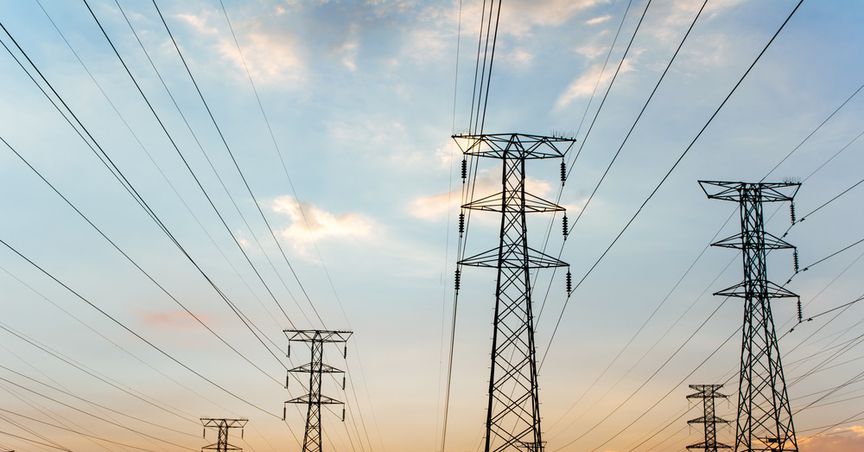Summary
- Ovo Energy pays a £1.2 million fine after missing smart meters deadline
- The SSE Group is moving towards a green economic recovery post lockdown with a windfarm investment of £580 million
- The company has also been investing in the green economic recovery and progressing the £7.5 billion capex plan of low-carbon investments
- Total operating profit for the financial year 2021 was expected to be in the range of £150-£250 million
SSE Group, which was bought by Ovo Energy in 2020, had failed to install enough smart meters during the year 2019. Therefore, Ovo Energy has been fined £1.2 million by Ofgem, UK’s energy regulator.
SSE Plc (LON:SSE), had entered into an agreement to sell its SSE Energy Services business to Ovo Energy Limited last year. The total sale agreement entered by both the companies was estimated at an enterprise value of £500 million, which included cash of £400 million and loan notes worth £100 million. SSE Group sold its energy business to Ovo Energy in January 2020 and expected to reduce it net debt from the proceeds of this transaction.
According to UK’s energy regulator, Ofgem, the fines were imposed on the company for missing its deadline of 2019 for rolling out smart meters for UK households. All the energy suppliers in UK are expected to roll-out smart meters for homes and small businesses by the mid of 2021, according to the government’s smart meter roll-out plan. It is important to note that the fine imposed on SSE Energy Services was for 2019, when it was not acquired by Ovo Energy.
Britain’s independent energy regulator, Ofgem’s role is to protect consumers rights and provide them with fairer, greener energy system. The regulator does whatever it takes to pass on the lowest cost to consumers by working closely with the industry, government, and consumer groups. The regulator also provides the energy players with an environment conducive to innovation and competition, which would eventually lead to competitive pricing and lead to new products & services for Britons.
Smart meters empower customers to control their energy usage and expenses. This leads to more cost savings for Briton households who have got them installed. In addition, a smart meter enables Britons not to be burdened with bills based on estimated readings. They are also not required to take meter readings.
The energy regulator said that it would not be taking any enforcement action on the Britain’s second largest energy supplier, since it has received a voluntary payment of £1.2 million in its consumer redress fund.
Do read: Review of Two Defensive Players in Electricity Domain: SSE Plc and ContourGlobal Plc
SSE Plc intends to pay dividend despite the coronavirus crisis
Utility company, SSE Group Plc’s performance has been resilient during the pandemic. The Group is moving towards a green economic recovery post lockdown as it has approved a final decision regarding the investment in 443 MW Viking onshore wind farm with 103-turbines. The expected capital expenditure on the wind farm is £580 million. Overall, SSE is also well placed to play a significant part in helping the UK to complete the transition to net-zero emissions. It has an established reputation in managing large capital projects and has a good position with respect to liquidity and financial management.
Despite the several headwinds faced in the Energy Services business, the company is making progress in assessing the options for the future. Moreover, wholesale prices have increased, and the consumption and production of renewables have dropped. Since early 2020, the COVID-19 pandemic has caused significant disruption to the world’s population, business and economic activity and may ultimately impact SSE’s future performance and asset values.
The Group has reported that during the period, it successfully issued new hybrid capital securities with an all-in funding cost of just under 3.8 per cent per annum for FY 20. The impact of COVID-19 on the operating profit for the Q1 2020 remained in line with anticipations. Further, the total operating profit for the financial year 2021 was expected to be in the range of £150-£250 million before mitigation. The company has also been investing in the green economic recovery and progressing the £7.5 billion capex plan of low-carbon investments.
The Group added that it continues to target the delivery of the five-year dividend plan to the financial year 2023, including a full-year dividend of 80 pence per share in financial year 2021. SSE Plc intends to declare a 24.4 pence per share of interim dividend in November 2020. In the three months to 30 June 2020, the Group’s renewable energy business saw energy output of 1,988 gigawatts, a decrease from 2,352 gigawatts planned for the quarter and 1,879 gigawatts recorded a year before. In thermal business, the Company recorded electricity generation of 4,260 gigawatts, an increase from 3,810 gigawatts recorded a year before.
SSE Plc -Stock price performance
|
CMP (GBX) after market close as on 21 August 2020 |
1297 |
|
Marker Capitalisation (£ million) |
13443.05 |
|
52 weeks High (GBX) |
1686.5 |
|
52 weeks Low (GBX) |
1072.5 |
|
Price % Change -1 Year |
18.39% |
(Source: London Stock Exchange)
Ofgem reduces energy price cap limit
Starting from October 2020, the cap on default dual-fuel energy tariffs for 11 million households will be down by £84, from an average of £1,126 per year to a record low of £1,042. This cut in levy announced for standard variable energy is short of the industry projections of a minimum of £85 and up to £100 a year. The new cap on energy bills for customers who use pre-payment energy meters will be lesser by an average of £94 on an annual basis, lowering the overall cap to £1,070 for a year.
During the lockdown period, the energy market prices toppled to 20-year lows. It is pertinent to understand that the domestic consumption was more in these months as people stayed at home and businesses including manufacturing units, hospitality companies, corporate offices, and schools were shut. With the restart of economic activities, the demand for energy has started rising, leading to an increase in prices.
Do read: Coronavirus impact-Ofgem reduces energy price cap limit
As lockdown measures have eased, installations have begun to pick up, however, the companies need to cover a lot of ground. As most of the government schemes are likely to be called off in October 2020, the long-term impact on the roll-out is still to be fully revealed. With several job losses in UK and a higher probability of default on energy bills, the energy companies might face financial pressures later this year due to the economic fallout of the pandemic. In addition, the companies are burdened with increased cost of installations of smart meters.




